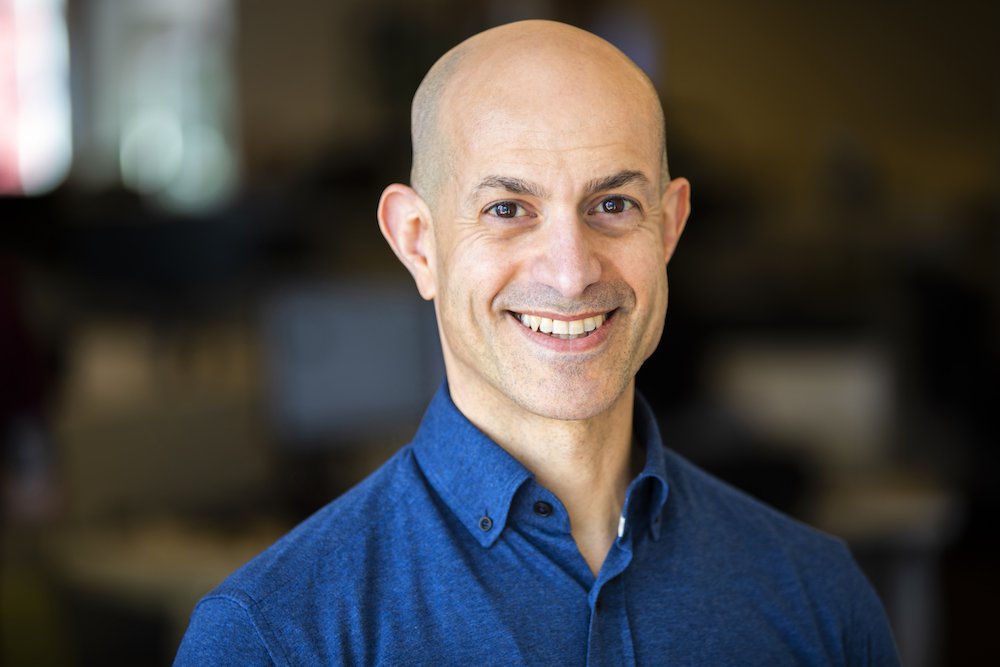When life gives you a wake-up call, the message is clear: Make a major change or die (metaphorically and sometimes literally). For Chris Tsakalakis, CEO of Vivino, the world’s largest online wine marketplace and the most downloaded wine app, his wake-up call came in a one-two punch.
The first punch
Tsakalakis is a successful and well-respected business leader in Silicon Valley. But in 2009, things were very different. At that time, he was president of online ticket exchange company StubHub, managing a team of 300 people with 10 direct reports. “My biggest mistake was thinking everything rested on my shoulders,” says Tsakalakis. “I felt like I needed to come up with the answer for everything and do everything myself.”
His management model wasn’t his only challenge. As a leader, he admits he had a tendency to be stoic, demanding, and impatient.
That year, he received one of the worst performance reviews of his life, his team didn’t like him, and he was highly stressed. He needed to do something about it—immediately.
THE SECOND PUNCH
Tsakalakis looked inward. He hired a professional coach who helped him see where he needed to make changes and why. Most of their time was spent developing his soft skills. Unlike hard skills such as software development and speaking foreign languages, soft skills are capabilities difficult to measure. These include skills such as negotiating, critical thinking, collaborating, and communicating.
However, cultivating soft skills were just part of his challenge. While Tsakalakis was dealing with the pressure to improve his professional life, his wake-up call landed its second punch. He needed open heart surgery, even though he was only 41 years old and in good physical shape.
The surgery forced Tsakalakis to stop being the only decision-maker on his team. Before leaving the office for what would be a two-month recovery period, he had to delegate all his tasks and responsibilities.
THE EPIPHANY
During his recovery, Tsakalakis called into the office just once. Despite focusing on his health, however, he continued to worry about the chaos that awaited him upon his return.
But when he stepped back into his office, he found that not only had his team figured most things out on their own, but they were producing quality work and delivering it on time.
The biggest revelation for Tsakalakis was that everything didn’t have to weigh upon his shoulders.
Before his surgery, his image of a perfect team was akin to a cluster of worker bees busily doing what they were told. After his epiphany, his new perfect scenario was to have a team so capable that he didn’t have to be involved in everything and could go home early.
Tsakalakis began to think of teams as a collection of experts with whom you could debate and share ideas. “If something didn’t work out in the past, people were quick to say, ‘It’s your screwup, Chris. It’s not on me,’” says Tsakalakis. “But when we collectively make decisions about the business, we collectively own decisions together. When something doesn’t work out, we collectively jump in to fix them.”
IT’S NOT ABOUT BEING LIKABLE
It’s easy to think someone who is likable has great soft skills. But being likeable isn’t a soft skill; it’s an outcome of using soft skills. Building trust, solving problems, and utilizing resources are some soft skills that contribute to success.
Of course, people who are liked by everyone but don’t obtain results will get fired, Tsakalakis notes. Likewise, people who alienate everyone around them but get results also get fired.
Soft skills alone aren’t enough to keep you employed. They’re what help you get the results needed to keep your seat at the table.
Tsakalakis says, only half-jokingly, that since his wake-up call in 2009, he’s gone “from dictator to semi-enlightened leader.” He continues developing his soft skills through daily practice. One reason is that they enable him to manage more effectively. His improved communication and collaborative skills have led to increased team productivity and creativity and decreased stress.
Another reason is that such skills will be critical for future success. Millennials and Gen Z expect more from work than a paycheck. They expect transparency, inspiration, and a company that aligns with their personal values—things that technical know-how and other hard skills can’t provide on their own.
Trends and bottom lines aside, perhaps the most important reason for honing your soft skills boils down to presenting yourself as human rather than as a corporate talking head. “As I’ve often been told, you may not remember what someone said,” Tsakalakis says, “but you always remember how they made you feel.”

